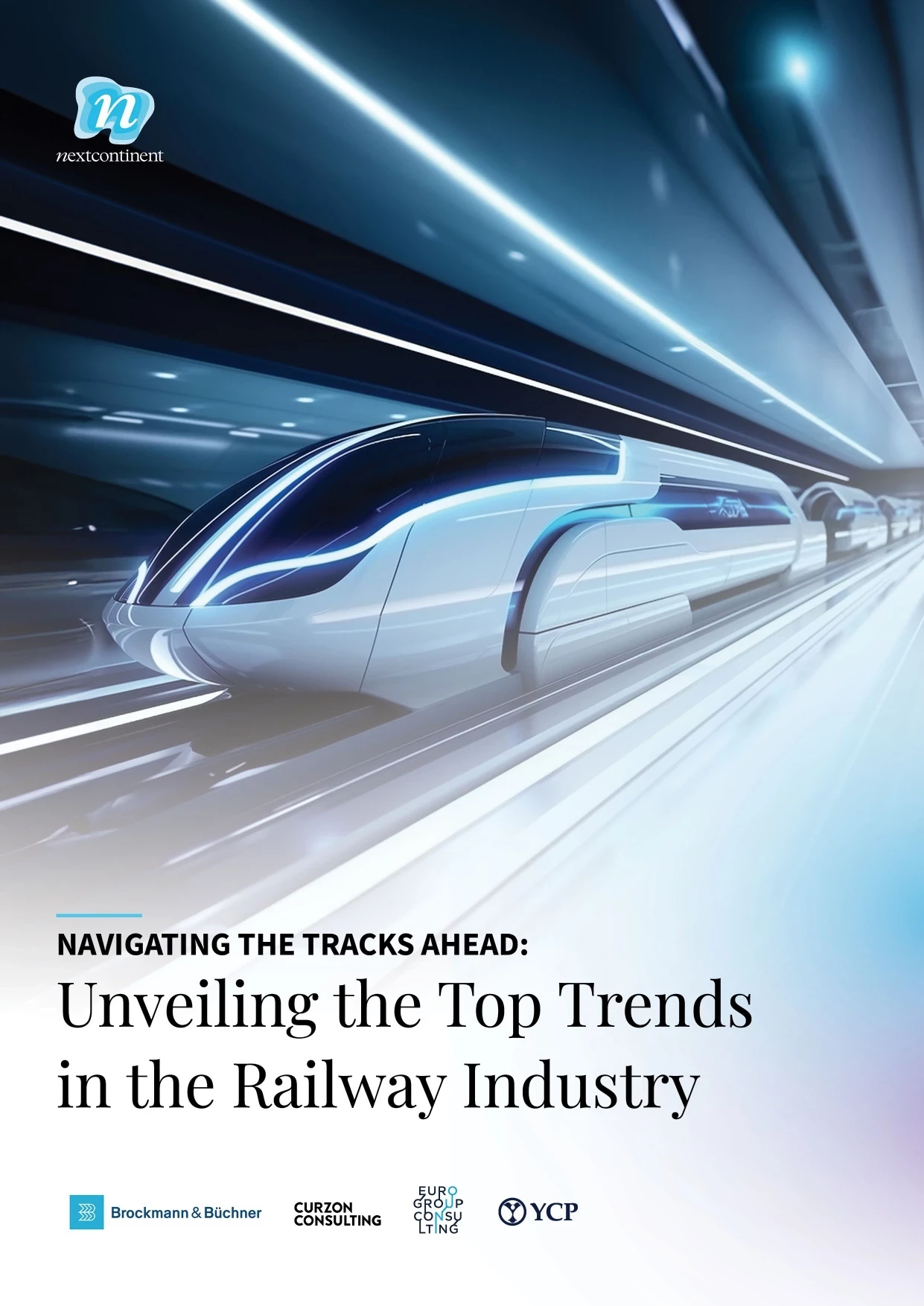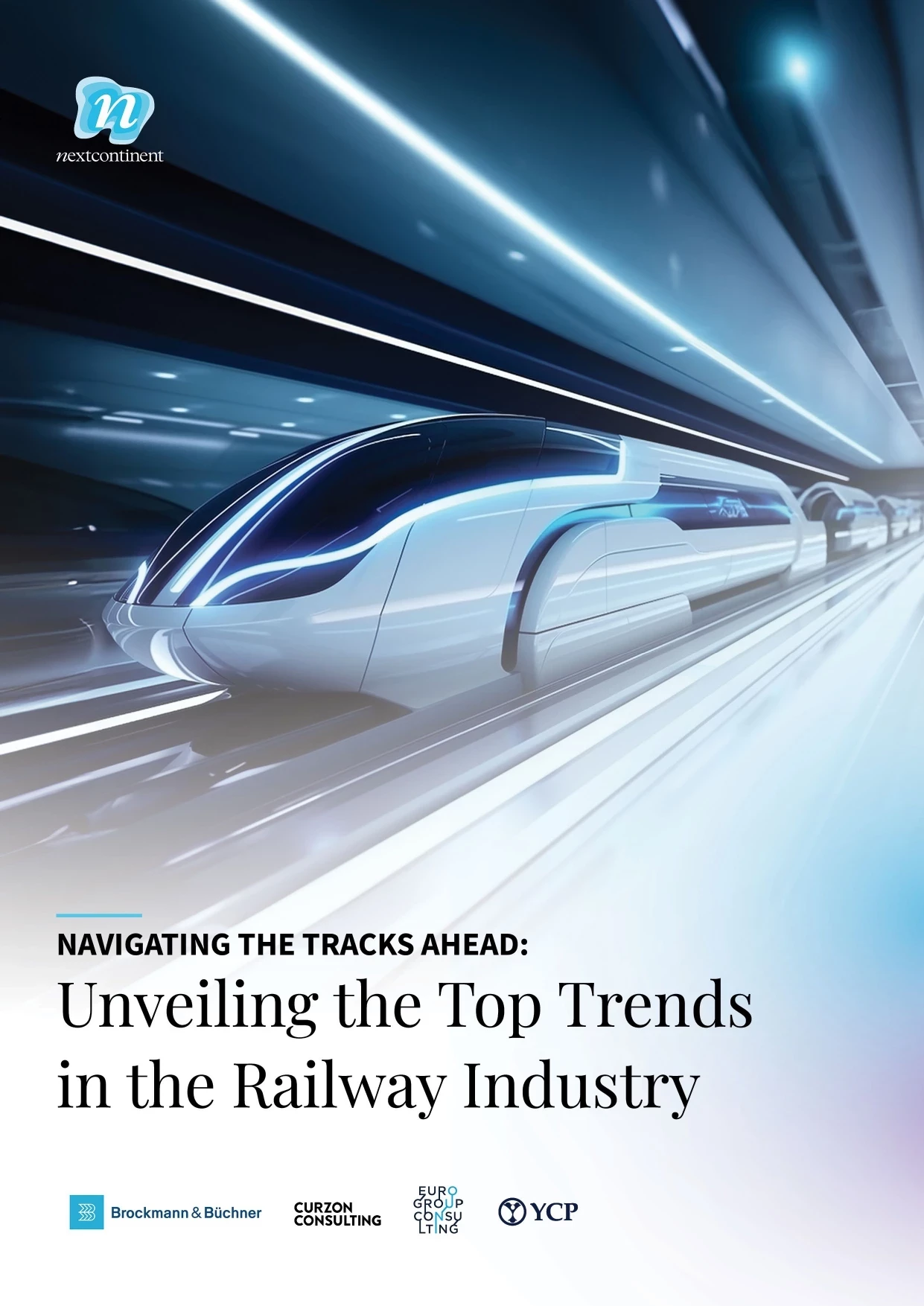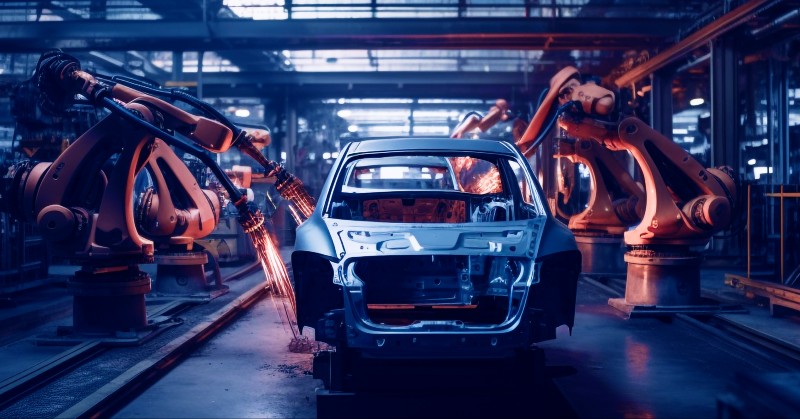The global railway industry is at a critical juncture, facing the dual challenges of evolving passenger expectations and the pressing need for technological integration. With the rise of cutting-edge technologies like Artificial Intelligence (AI), the Internet of Things (IoT), and big data, railways are shifting from traditional methods to a more dynamic, data-driven approach to enhance efficiency and customer experiences.
YCP is proud to be part of Nextcontinent’s latest white paper, Navigating the Tracks Ahead: Unveiling the Top Trends in the Railway Industry, which spotlights global trends and opportunities shaping the future of railways.
Our Partner, Leon Cheng, shared his expert insight on the topic, contributing an in-depth analysis of AI and sustainability use cases in global railways. Leon has over 12 years of consulting experience in the automotive, railway, and broader mobility sectors, leading over 100 projects in strategy, M&A, process improvement, and supply chain optimization to drive growth for OEMs, suppliers, and service providers.
This white paper delves into the railway industry's transformation, offering in-depth discussions on how AI and IoT have the potential to revolutionize operational processes and customer services. YCP provided an in-depth analysis of the synergy between AI, big data, and sustainability in railways, highlighting industry use cases in autonomous train systems, traffic management, and smart stations, as well as a case study on AI and IoT initiatives in India.
Global Railway Trends & Opportunities
AI and big data are transformative forces in the global railway industry, creating tangible impact across the railway value chain for both passengers and operators. The following are key technological trends and opportunities that stakeholders can leverage to significantly improve the global railway industry, from elevating passenger journeys to improving railway operations.

- Artificial Intelligence – This trend focuses on how AI solutions can be leveraged to elevate passenger experiences, including enhancing core services, augmenting additional services, and creating seamless journeys at railway stations. It also explores in depth how AI can be used in conjunction with data analytics to perform critical operations, such as optimizing resource allocation for travel time and automated inspections.
The AI and data-driven solutions featured and discussed include chatbots and virtual assistants, real-time crowd management, personalized offers based on user data, route optimization, and more. - Big Data – The primary consideration in this trend centers on how the railway industry is collecting vast amounts of data and how actionable insight gained from the data gathered can enable efficient and optimized end-to-end railway operations.
Key insights on data trends in railways include collection systems and data centers (decentralized vs centralized), cloud platforms, diagnostics and condition data, etc. - Synergizing Data, AI, and Sustainability – This trend touches upon an emerging area in railway, specifically sustainability, and how AI technology is being leveraged to achieve benefits, such as energy optimization and extended asset lifespan.
Further insights include discussions on the synergy of AI and big data with sustainability, and how it bridges the gap between technological innovation and environmental responsibility.
These trends reflect the shifting landscape of the global railway industry, showcasing the vast potential that technological innovation holds for operators and passengers alike. While understanding these trends is crucial, equally important is knowing the frameworks necessary to successfully implement AI and data-driven solutions. As the industry continues to navigate its transformation, stakeholders must adopt a holistic approach—one that leverages current trends and opportunities while proactively addressing potential challenges.
Artificial Intelligence in Autonomous Train Systems
Autonomous train systems have evolved drastically and are now capable of fully automated and independent operation without human assistance.
While AI is only one component (albeit one of the most important) of the technological foundation needed to enable autonomous train systems, industry players must ensure that other technologies utilized can support and complement AI deployment. The technology required to support autonomous train systems generally includes:

Author
Leon Cheng
Leon Cheng is a Partner for YCP based in the US office and Head of our Mobility Practice.
Recent White Paper
See All





